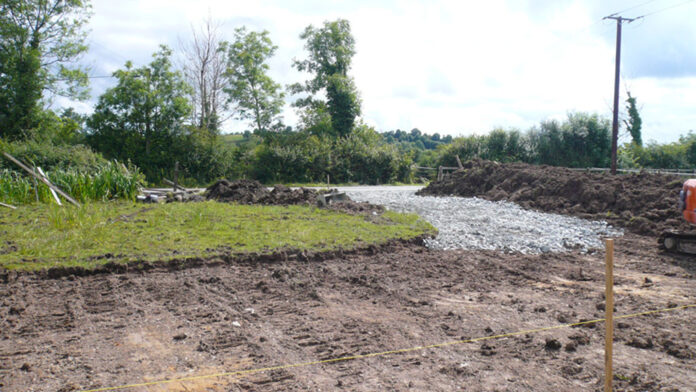A CALL has been made for more flexibility in the kinds of waste water treatment processes considerable acceptable when applications for rural housing are being considered by Clare County Council.
Councillor Cillian Murphy made an appeal, at the July meeting of the local authority, for more consideration to be given to alternative systems, which he said are increasing in sophistication and effectiveness all the time. “There are farmers out there with sons and daughters who want to stay in West Clare,” he said. “There is a perception that they are unlikely to get planning permission because a number of other applicants on nearby sites have already had failed percolation tests. There is a sense that assessors can tell by looking at the maps, what the local drainage is like, and whether a percolation test is likely to pass or fail.”
The Fianna Fáil member stressed that he was in no way advocating that environmental guidelines be bypassed, but pleaded with the authority to consider other treatment options in the interests of enabling people to live in rural areas.
“I thank the council for responding to my motion and for the Environmental Protection Agency (EPA) guidelines which I taken up a lot of my time over the weekend,” he said. “I’ve been down a number of rabbit holes trying to make sense of them. I am not advocating bypassing the guidelines, but there are a number of other treatment options, including reed beds, that could be considered. As councillors, we have a key role in sustaining rural areas and we must promote solutions rather than blocking applications for homes.”
There was cross-party support for the motion, with Councillor Johnny Flynn giving his support. “The one caveat is that environmental protection is key,” the Fine Gael member said. “I understand that Cavan County Council have developed their own code of practice which has been accepted. We need a code which is environmentally sustainable and proactive in terms of repopulating rural areas like West Clare.”
Councillor PJ Kelly also gave his support, saying that common sense had to prevail. “I’ve seen situations in West Clare where someone owns over 100 acres of land and his son couldn’t secure planning permission on any of it, on the basis of a failed percolation test,” he said. “There is something wrong in that case.”
An appeal came from Councillor Pat Hayes for the authority to “think outside the box” about alternative waste water treatment for rural homes. “It is past time that we looked at alternatives,” he said, suggesting that a workshop might be arranged to examine modern technologies and solutions to the issue.
Councillor Joe Cooney added that he was aware of the existing guidelines, but also of a number of new treatment systems that could also be given consideration.
Senior Executive Planner Garreth Ruane told the meeting that planning decisions must ultimately be guided by EPA regulations. He noted that a number of modern treatment systems still discharged to the ground, making the percolation test a necessity. He told members that the EPA code of practice on waste water treatment for one-off homes was currently under review and that a workshop would be held with planning agents and architects once the recommendations of this were released.
A written response to Councillor Murphy’s motion said that, “if alternative disposal methods are also proposed under any review to the guidelines then these too will be considered as part of any assessment. For now however, the Planning Authority will continue to comply with, and be guided by, the EPA Code of Practice.”
Councillor Murphy thanked the authority for its response. “If I was a cynic, I would say that this approach is designed to push people into the towns,” he remarked. “There will always be a requirement for people to live on the land. We must be proactive about supporting this. The world has changed and technology has moved on.”

